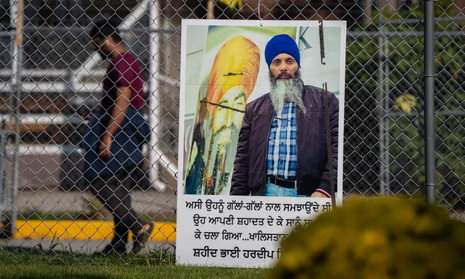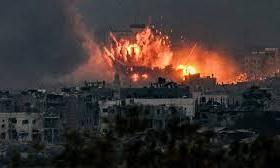
Israel sends negotiating team to Paris for ceasefire and hostage talks
text_fieldsTel Aviv: The Israeli war cabinet has dispatched a negotiation team, led by Mossad Director David Barnea, to Paris on Friday to engage in talks regarding a potential ceasefire and hostage release deal, confirmed an Israeli official.
The negotiation team is anticipated to have the authority to participate actively in negotiations rather than merely considering proposals, as they did during the previous meetings in Cairo last week, according to the official.
On Friday, an Israeli official verified to CNN that the negotiation team had left for Paris.
CIA Director Bill Burns, along with counterparts from Egypt and Qatar, were expected to be present in Paris on Friday for discussions, as per information from two sources familiar with the plans shared with CNN on Wednesday. However, the Israeli government has not yet confirmed its attendance.
The decision to dispatch the team was made during a war cabinet meeting on Thursday night, following a day that saw Brett McGurk, US President Joe Biden's Middle East coordinator, meeting with top Israeli officials, including Prime Minister Benjamin Netanyahu.
The Israeli official mentioned that the government had been awaiting confirmation that medication had reached the hostages in Gaza before agreeing to return to the negotiating table.
The proof of medication delivery, combined with positive signals from talks in Cairo on Wednesday and encouragement from US officials, ultimately prompted Israel to send a negotiation team to Paris.
This move comes after reports that the Biden administration is working urgently to secure a ceasefire in the Israel-Hamas conflict before Ramadan next month. Senior US officials believe that releasing over 100 Israeli hostages from Gaza is the only plausible way to achieve the first pause in the deadly conflict since a seven-day truce in late November.
A significant aspect of the hostage deal discussions is Israel's threat to launch an offensive into Rafah in southern Gaza if a deal is not reached by the start of Ramadan on March 10. More than a million displaced Palestinians have sought refuge in Rafah, and US officials have cautioned Israel against advancing farther south without ensuring the safety of those civilians.
Hamas leaders have been in Cairo this week, meeting with Egyptian officials to expedite the deal after Netanyahu dismissed the recent series of proposals from the militant group as "delusional."
Key sticking points in the talks reportedly include Hamas' demands for the release of around 1,500 prisoners in the first phase, withdrawal of Israeli troops from Gaza, and discussions leading to a formal end to the war.
Hamas' political leader, Ismail Haniyeh, concluded his three-day trip to Egypt on Thursday, where he met with the head of Egyptian intelligence Maj. Gen. Abbas Kamel. Discussions revolved around the situation in Gaza and the potential hostage-prisoner exchange, as stated in a Hamas statement on Friday.
The first hostage deal in late November involved the return of dozens of hostages captured by Hamas on October 7 and a subsequent week-long truce. Since the truce's end three months ago, civilian casualties in Gaza have surged, drawing increased global condemnation of Israel's military operation and political pressure on the Biden administration to call for a permanent end to the war.
Israel has cautioned that if a hostage deal is not reached by the start of Ramadan on March 10, the Israeli military will proceed with its planned offensive in Rafah, despite growing international calls for restraint.
During a meeting at the Ministry of Defense headquarters in Tel Aviv on Thursday, Defense Minister Yoav Gallant stated that Israel is "expanding" the authority held by hostage negotiators. The Israel Defense Forces are "preparing the continuation of intense ground operations," according to a statement from his office.
Rafah remains the last refuge for Palestinians fleeing Israel's bombardment, with over 1.5 million people crammed into a sprawling tent city against the Egyptian border. Families face severe shortages of food, water, medicine, and shelter.
In recent weeks, the Israeli military has intensified aerial attacks on central and northern Gaza. Entire families have been wiped out, and displacement shelters flattened. Hundreds of thousands of displaced civilians, once finding refuge in hospitals, are now on the run again, as medical facilities across the enclave are crushed by bombardment or besieged.
Israel initiated the ongoing phase of military offensive after the Hamas-led attacks on southern Israel on October 7, resulting in about 1,200 casualties. Israeli attacks on Gaza have since killed at least 29,313 Palestinians and injured at least 69,333 others, according to the Ministry of Health in Gaza.






















